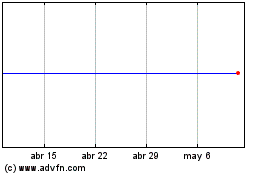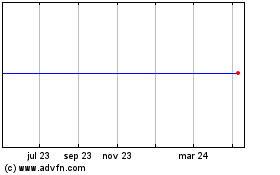By Emily Glazer
The dominant U.S. tech platforms for digital political
advertising are taking steps to limit the level of detail that
political campaigns or other groups can use to target voters,
reversing a yearslong trend of offering ever-more precise tools
that in some cases facilitated the spread of misinformation.
Facebook Inc. is discussing increasing the minimum number of
people who can be targeted in political ads on its platform from
100 to a few thousand, according to people familiar with the
matter. The potential move is part of an effort to make it less
easy for advertisers to microtarget, which has been criticized as
enabling political actors to single out groups for misleading or
false ads that aren't seen by the broader public.
Alphabet Inc.'s Google said on Wednesday that advertisers would
no longer be able to target political messages based on users'
interests inferred from their browsing or search histories. And
last month, Twitter Inc. said it would stop accepting most
political ads.
With the 2020 election approaching and billions of dollars
expected to be spent on digital political advertising, a lack of
uniform rules for the ads is leading to confusion over exactly what
is allowed on the platforms, how intensely new rules will be
enforced and whether advertising strategies and budgets will need
to change further.
The campaign of Democratic presidential candidate Joe Biden, a
front-runner whose campaign has spoken out about ads with
unsubstantiated claims about him, declined to comment on Facebook's
potential moves. Bill Russo, a spokesman for the former vice
president, said the new policies from Twitter and Google are a step
in the right direction but not enough.
"Social media companies still have more work to do in order to
ensure that their platforms are not rife with disinformation that
corrodes the American people's faith in their institutions and even
their democracy," Mr. Russo said.
Google's decision was criticized by Brad Parscale, who is
heading President Trump's reelection effort. "Political elites
& Big Tech want to rig elections," he wrote in a tweet
Wednesday, adding that it would hurt Mr. Trump, a Republican, as
well as leading Democratic candidates. The Trump campaign's Twitter
account also said Wednesday: "@facebook wants to take important
tools away from us for 2020."
Watchdogs including lawmakers and advocacy groups have called
for greater oversight of political advertising following
revelations that Russian entities purchased digital ads designed to
influence the 2016 presidential election.
Facebook has sought feedback from large Republican and
Democratic political ad buyers about boosting the minimum number of
people who are targeted in political ads as well as other ideas,
one of the people familiar with the matter said. The discussions
picked up around the time Facebook Chief Executive Mark Zuckerberg
testified on Capitol Hill about a month ago about the company's
plans for a new cryptocurrency.
"As we've said, we are looking at different ways we might refine
our approach to political ads," a Facebook spokesman said Wednesday
night and reiterated Thursday. It is unclear if or when Facebook
would roll out any changes.
Ad buyers have said narrowly targeted ads are often used to
reach specific audiences ranging from racial or ethnic groups to
lawmakers' and their staff. They are also suited for local
elections or ballot measures.
Questions about any potential changes were expected to be front
and center at a Facebook event for political ad buyers scheduled
Thursday evening in Washington, ad buyers said. The event is
focused on sharing how Facebook is preparing for the 2020 election,
according to a copy of the invitation reviewed by The Wall Street
Journal.
Danielle Butterfield, who leads paid media for Priorities USA, a
progressive super PAC, said the tech firms' announced changes have
affected Priorities USA's strategy, though the team has worked to
diversify its methods for targeting people.
"Changing the rules midgame is not ideal," said Ms. Butterfield,
who worked in digital operations for the recent Hillary Clinton and
Obama presidential campaigns. Priorities USA has said it intends to
spend around $100 million in the 2020 election.
Google and Facebook capture the bulk of digital political
advertising. Total spending on digital political ads in the U.S. is
expected to reach $2.9 billion in 2020, up from $1.4 billion in
2016, according to Borrell Associates Inc., a consulting firm.
A spokesman for Democratic presidential candidate Andrew Yang,
who is active on social media, said Mr. Yang supports actions by
the tech platforms to prevent the spread of misinformation. The
spokesman, S.Y. Lee, said that while social media is useful for
fundraising, it isn't the only means for drawing supporters.
Facebook in September decided to no longer fact-check ads from
political campaigns, kicking off questions and concerns from
political ad buyers.
The move prompted the presidential campaign of Sen. Elizabeth
Warren (D., Mass.) to run an ad on Facebook with a false claim that
Mr. Zuckerberg endorsed President Trump's re-election to highlight
complaints about the social-media giant's handling of
misinformation. The ad's text quickly acknowledged the endorsement
claim was false and criticized Facebook's policy.
Last week, Twitter detailed its policy -- first announced in
October -- of banning political ads and imposing restrictions on
geographic and keyword targeting for advertising tied to political
causes. It will go into effect world-wide on Friday.
On Wednesday, Google said it would stop allowing highly targeted
political ads on Google Search, Google's video platform YouTube and
third-party sites across the web purchased through Google's
ad-buying software.
Political ads can only be targeted based on users' age, gender,
and location at the postal-code level. Google said in a blog post
it will roll out the ban world-wide on Jan. 6, with launches
planned earlier in Europe.
Google has historically accepted political ads, and in October
carried a controversial ad by the Trump campaign that included an
unsubstantiated claim about Mr. Biden's role in the ouster of a
Ukrainian prosecutor when he was vice president.
The Biden campaign complained to Google as well as Facebook,
which also ran the ad and declined to take it down. Mr. Biden's
campaign has been in touch with Facebook, Google and Twitter about
its concerns over their political ad policies, according to letters
reviewed by the Journal and a person familiar with the matter.
During a politics and tech conference in Washington earlier this
week, Eric Wilson, a Republican political strategist, said he had
to change much of his presentation given the tech platforms'
announced or expected political ad-policy changes.
He said campaigns may still try to use other types of targeting,
even with limitations on Twitter and Google platforms, to reach
certain audiences. "Twitter created a lot of gray area," he told
attendees Wednesday. "That's going to be difficult for them to
enforce."
Twitter officials have said the company will likely make
mistakes and will need to evolve its policy.
--Jeff Horwitz and Patience Haggin contributed to this
article.
Write to Emily Glazer at emily.glazer@wsj.com
(END) Dow Jones Newswires
November 21, 2019 20:28 ET (01:28 GMT)
Copyright (c) 2019 Dow Jones & Company, Inc.
Twitter (NYSE:TWTR)
Gráfica de Acción Histórica
De Abr 2024 a May 2024

Twitter (NYSE:TWTR)
Gráfica de Acción Histórica
De May 2023 a May 2024
